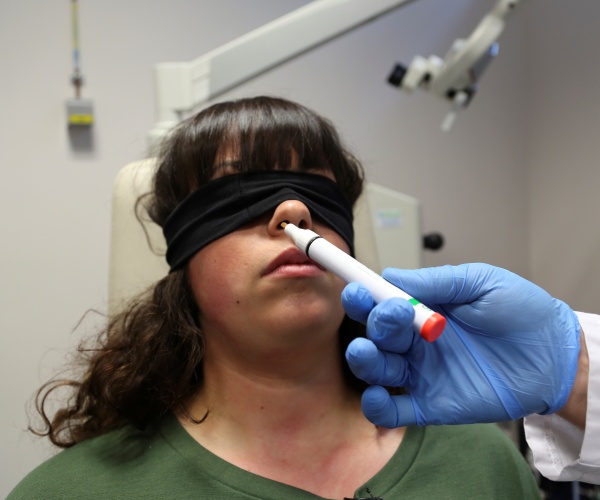Losing sense of smell from COVID-19 can wreak havoc on health
By Lynn Allison From Newsmax

Anosmia, or the inability to smell, is one of the most common side effects of COVID-19 and could be potentially deadly. Without your sense of smell, you can not detect gas leaks or spoiled food.
In January, a Texas teenager pulled her family to safety after a blazing fire engulfed their Waco home. Every member of the Rivera family except Bianca had suffered from COVID-19, and lost their sense of smell so they did not realize their house was on fire. The courageous teen bravely evacuated her 3 family members and their 4 dogs, according to CNN.
According to USA Today, smell disorders like anosmia can lead to depression and social withdrawal. Lacking the ability to smell food, some sufferers become malnourished because they lose their appetite. Others may try adding too much salt or sugar to their food to make it more palatable thereby compromising proper nutrition.
According to the Washington University School of Medicine in St. Louis, anosmia is the temporary or permanent loss of smell. Dr. Jay Piccirillo says that for 95% of COVID-19 patients the anosmia usually lasts 2 to 3 weeks, but there is a chance it may never return. He estimates that between 40% and 60% of COVID-19 patients experience loss of smell during the initial and acute phases of the disease, and about 5 percent still suffer from anosmia after three months.
Dr. Steven Munger, the director of the Center for Small and Taste at the University of Florida says, in an opinion piece for USA Today, that because of lack of funds, research into smell disorders has been sparse and treatments are sadly lacking.
“We have known for decades that viruses causing upper respiratory disease such as the flu or the common cold can result in prolonged, and in some cases, permanent, smell loss,” he says.
Viruses are not the only causes of anosmia, says Munger. Traumatic brain injury, Sinonasal disease, and neurodegeneration associated with Alzheimer’s disease can also be culprits.
A national survey conducted a decade ago found that 12.4% of study participants aged 40 and older had hyposmia, the reduced ability to smell, or anosmia. That means more than 16 million Americans are plagued with smell disorders and that does not include the many more afflicted with the condition since COVID-19 began.
Munger calls for more funding for research on this important issues as studies have shown that older adults who lose their sense of smell have a significantly higher death rate than others.
Washington University researchers are studying methods and techniques to help COVID-19 patients regain and recover their smell loss through olfactory and visual training, said Dr. Piccirillo.
There are handy DIY smell training kits with essential oils and instructions available at Amazon developed by The Smell Project for those who wish to try home therapy.
© 2021 NewsmaxHealth. All rights reserved.
For more on this story go to: NEWSMAX





